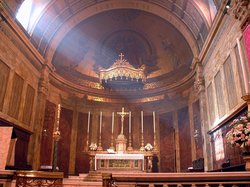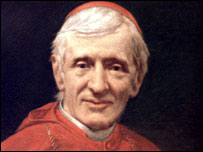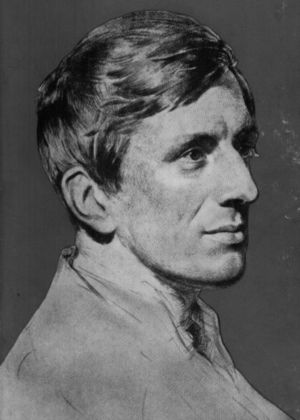Did Cardinal John Henry Newman pick up where St. Bernard left off? Father Ian Ker thinks so; he claims that reading Cardinal Newman is like reading the great Church Fathers.
The expert on Cardinal Newman and professor of theology at Oxford University shared with ZENIT how the venerable Oratorian was a pioneer in the renewal of theology, anticipated the Second Vatican Council and was a writer of great faith.
Question: Why has the momentum suddenly increased for Cardinal Newman's cause for canonization during Benedict XVI's pontificate? What is the Holy Father's interest in Cardinal Newman?
 Father Ker: Although Newman worked as an ordinary parish priest among the very poor in inner city Birmingham when he began the Oratory there, and later in the more salubrious suburb of Edgbaston where the Oratory was finally established and where he continued to carry out ordinary parish duties, his main work lay in his intellectual apostolate and writings.
Father Ker: Although Newman worked as an ordinary parish priest among the very poor in inner city Birmingham when he began the Oratory there, and later in the more salubrious suburb of Edgbaston where the Oratory was finally established and where he continued to carry out ordinary parish duties, his main work lay in his intellectual apostolate and writings.
So, although known locally to be a holy man, there was never the kind of popular cult that a less intellectual figure -- working, for example, among the poor or the sick or on the foreign missions -- would have inspired.
The momentum for his canonization in fact began some years before the present pontificate. Previously, the people interested in Newman were mainly scholars and theologians, the kind of people who are not necessarily particularly committed to intercessory prayer.
But once the cause was fully launched -- and there had been long delays -- it was possible to undertake a formal examination of his life and writings and conclude that he was indeed a man of heroic sanctity and worthy of being raised to the altars of the Church.
With this verdict the Holy See concurred and in 1991 Pope John Paul II declared Newman to be "Venerable,"' the first step toward canonization. That development has led more and more people to ask Newman for his intercession and -- assuming Newman is a saint -- was bound sooner or later to lead to a miracle.
Benedict XVI became interested in Newman while at the seminary through the interest of one of his teachers. And, of course, he would have been aware as a theologian that Newman was a great pioneer in the renewal of theology.
Q: Cardinal Newman was certainly a great theologian and Church historian, but what is it about his writings that make him worthy of being elevated to the status of doctor of the Church?
Father Ker: Newman is more than simply a very learned and clever thinker. Indeed, it has been said that he took over where St Bernard left off.
Anyone reading his writings cannot but be aware that reading Newman is like reading the great Church Fathers. In his writings we encounter a writer of profound faith.
 Q: Why is Cardinal Newman known as the "father of the Second Vatican Council?"
Q: Why is Cardinal Newman known as the "father of the Second Vatican Council?"
Father Ker: In the 1830s in Oxford, Newman and his fellow Tractarians launched a forerunner of the movement of "ressourcement," [which arose] in France a hundred years later.
It was this return to the scriptural and patristic sources that made possible the theology of Vatican II.
Newman most clearly anticipated the Council in his theory of doctrinal development and his personalist understanding of revelation (Constitution on Divine Revelation), his stress on the role of the laity and more fundamentally his understanding of the Church as communion (Constitution on the Church), his sense of the need for the Church to engage with the modern world and to abandon the siege mentality (Constitution on the Modern World), and his cautious support for ecumenism in its early days (Decree on Ecumenism).
Q: Many traditionalists are skeptical of Cardinal Newman and believe he is a stalking horse for modernism because of his ideas regarding the "development of doctrine" and his statements regarding the role of conscience. In his day he was deemed a liberal, but Russell Kirk featured him in a book titled "The Conservative Mind." Why is Cardinal Newman so controversial and misunderstood?
Father Ker: Cardinal Newman is most obviously misunderstood because of the common misinterpretation of his account of the relation of conscience to Church authority. Newman never envisaged so-called conscientious dissent from Church teachings.
What he did envisage was the possibility of a person conscientiously resisting an order from higher authority. His theory of development is no longer controversial but is part of mainstream theology and indeed is actually echoed in Vatican II's Constitution on Divine Revelation.
In his own day, Newman was indeed a radical in his thinking because he was ahead of his times as I mentioned earlier in this interview. But he was never a liberal in the sense in which we use the word today, but was always deeply loyal to the tradition and the teachings of the Church.
 Q: Cardinal Newman famously said that to be steeped in history is to cease to be Protestant, yet he was not known to be triumphalistic. What counsel might he give to Anglicans today, as well as to Catholics participating in ecumenical conversations with Anglicans?
Q: Cardinal Newman famously said that to be steeped in history is to cease to be Protestant, yet he was not known to be triumphalistic. What counsel might he give to Anglicans today, as well as to Catholics participating in ecumenical conversations with Anglicans?
Father Ker: By the end of his life Newman came to believe that Anglicans were "giving up everything." That process is now considerably advanced, and my view is that Newman would not regard as Christian in any meaningful sense large swathes of Western Anglicanism.
But long before that he was clear that any kind of corporate reunion with a body as disparate and divided as Anglicanism was totally impossible.
I believe that today he would warmly support any efforts to help disaffected high Anglicans enter the Catholic Church -- the idea that they should stay and try and leaven the lump he would regard as completely fanciful and unrealistic.
I think he would encourage dialogue with Evangelicals generally, not only in Anglicanism, and would not be surprised by the many conversions that have taken place since the reforms of Vatican II.
Q: What does Cardinal Newman's decision to join the Oratory of St. Philip Neri tell us about his spiritual and devotional life? Why not the Jesuits or Dominicans, both of whom had strong reputations for fostering theological scholarship?
Father Ker: Newman joined the Oratory of St Philip Neri partly in order to remain with his former Anglican community at Littlemore; partly because he did not find himself particularly attracted to any of the orders; partly because being already middle-aged he did not wish to begin again as it were, but rather to pursue continuity of his life as a secular priest living in community; and partly because his life at Oxford had always combined pastoral with academic work, a combination that he saw as typical of the Oratory. (Burford, England, Zenit.org)

